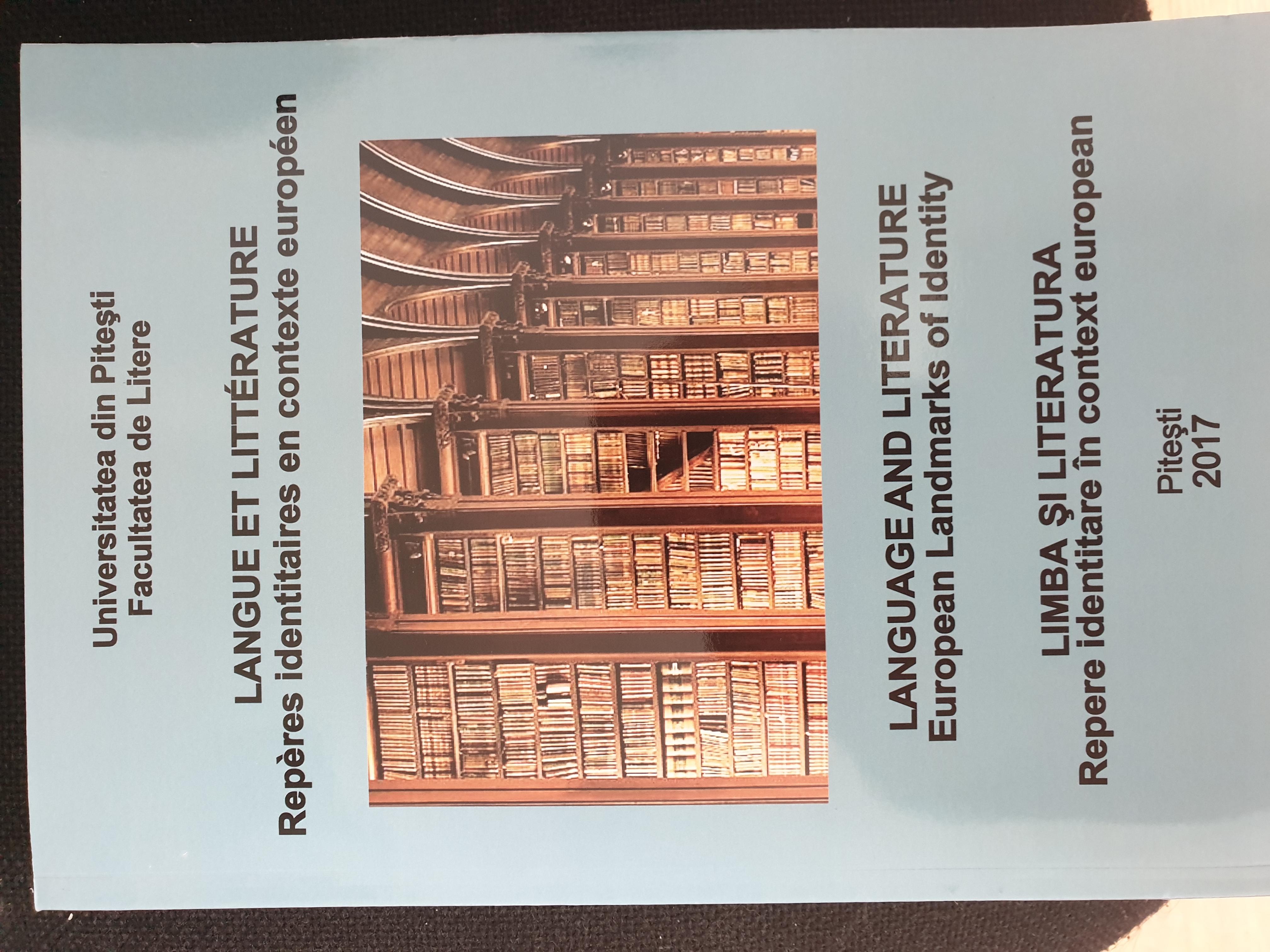LA RAPPRESENTAZIONE DELLA BELLEZZA-BRUTTEZZA FEMMINILE NEL ROMANZO “FOSCA” DI IGINIO UGO TARCHETTI
THE REPRESENTATION OF FEMININE BEAUTY AND UGLINESS IN THE NOVEL "Fosca" BY Iginio Ugo Tarchetti
Author(s): Abdellah MaasoumSubject(s): Language and Literature Studies
Published by: Editura Universităţii din Piteşti
Keywords: feminine; beauty; ugliness
Summary/Abstract: "(...) God ! How to express in words the frustrating ugliness of that woman (Fosca)! " " (...) Your beauty, your youth, your graces; You are my angel, you alone; Your noble heart, your soul pious and delicate, your virgin spirit and crippled. It’s the soul-soul I loved in you ... (...) a year in Milan, so I was knocked out to a door in the first floor, and a beautiful young woman (Clara) came up to me ... she was so serene, young, And the world seemed to have been so gentle with her so far, that I looked at her for a momen Without talking, including a sweet and profound wonder "... Fosca is considered to be the best proof of Tarchetti, one of the main figures of the Milan Scapigliatura, who worked on this novel until his death on 25 March 1869. However, he could not complete it: he laid out the two final chapters but the missing part , The Night of Love by Giorgio and Fosca, was written by his friend Salvatore Farina to allow the publication of the work, which came out on bands on the Pungolo , that same year.The story, in narrative fiction, originates from a manuscript (manzano espionage) in which Giorgio, a young officer, first recounts the love passions dating back to five years before, which have profoundly marked his life. He retired from military life due to heart disease, traveled to Milan where he met Clara, a beautiful young woman, married, with whom she lived an intense relationship of love.Clara is a twenty-five-year-old girl, tall and robust, but beautiful who casually meets the protagonist, Giorgio. You may think that you have a weak character because you give up the passion of love by abandoning a lion and a husband. He had married a very young man, only sixteen, with a man who was indifferent to him, so that he did not feel any sense; then, for the first time, he tried those very emotions that were part of love, he melted like snow in the sun and He was overwhelmed by that passion. During this time she takes care of Giorgio in a sweet way and is happy to live this love. But Clara is almost obliged to awaken from that beautiful dream of love for Giorgio because the case of the case has wanted to divide her and she has to undergo her mother’s and wife’s responsibilities. Fosca is a young, twenty-five-year-old woman, colonel’s cousin who loves reading books very well where it is not necessary to reflect why, being very sick of all kinds of known illness, with reading these, his sufferings would add to the sufferings Interiors due to reading reflections. Fosca suffered as little as his unconditional love for everyone and never fell. Provided with robust and fine intelligence, more than other women, he knows he is ugly and therefore has nothing to lose in any field except in that of happiness that, under his conditions, is difficult, where his cousin and friends , Have pity on her and it seems normal to them to be sick. Her illness had severely debilitated her and became deformed and infinitely thin so she could see almost the skeleton through her fine and refined clothes. His attitude is sweet and kind that almost nullifies his ugliness. Her infirmity also makes her extremely possessive and jealous of Giorgio, whom she loves deeply.The novel is certainly a great representation of the characters of romance where passion, feeling, inner lacerations and conflicts of consciousness appear. The form of the text is understandable, although sometimes it is necessary to reread the same phrase several times to understand its multiple meanings. The author decides to narrate the events in the form of an inner monologue, letters, and concise direct discourses. The text may seem somewhat boring for the long and detailed description of the characters’ landscapes and thoughts that have often lost the "thread" of the tale. Even if the author wants to believe that the text is only the result of a rediscovered manuscript, one can well understand that these loves and passions have been lived by him in person and not to forget he has decided to write his memories to which he holds so much that they made it become what it is.The author wants to put the two loves with the name: Clara a healthy and beautiful woman with whom the protagonist lives a limpid and happy love, Fosca woman sick and infinite ugliness with which the protagonist lives a turbulent and melancholic love. Certainly a clear message comes from the text: passions are incontestable so that they can destroy the lives of men and thus change the course of events related to them; In fact, in the text we read, before Fosca’s possessiveness, which loves the protagonist of the folly, then, of Giorgio who certainly can not stand beyond the fascination of Fosca who loves him so much. Giorgio is an exemplary man who because of his excessive goodness of love gives too much to Fosca and ends up getting sick and even once he is physically healed remains indelibly in his heart and memories continue to torment him.
Journal: LIMBA ȘI LITERATURA – REPERE IDENTITARE ÎN CONTEXT EUROPEAN
- Issue Year: 2017
- Issue No: 21
- Page Range: 248-253
- Page Count: 6
- Language: Italian

